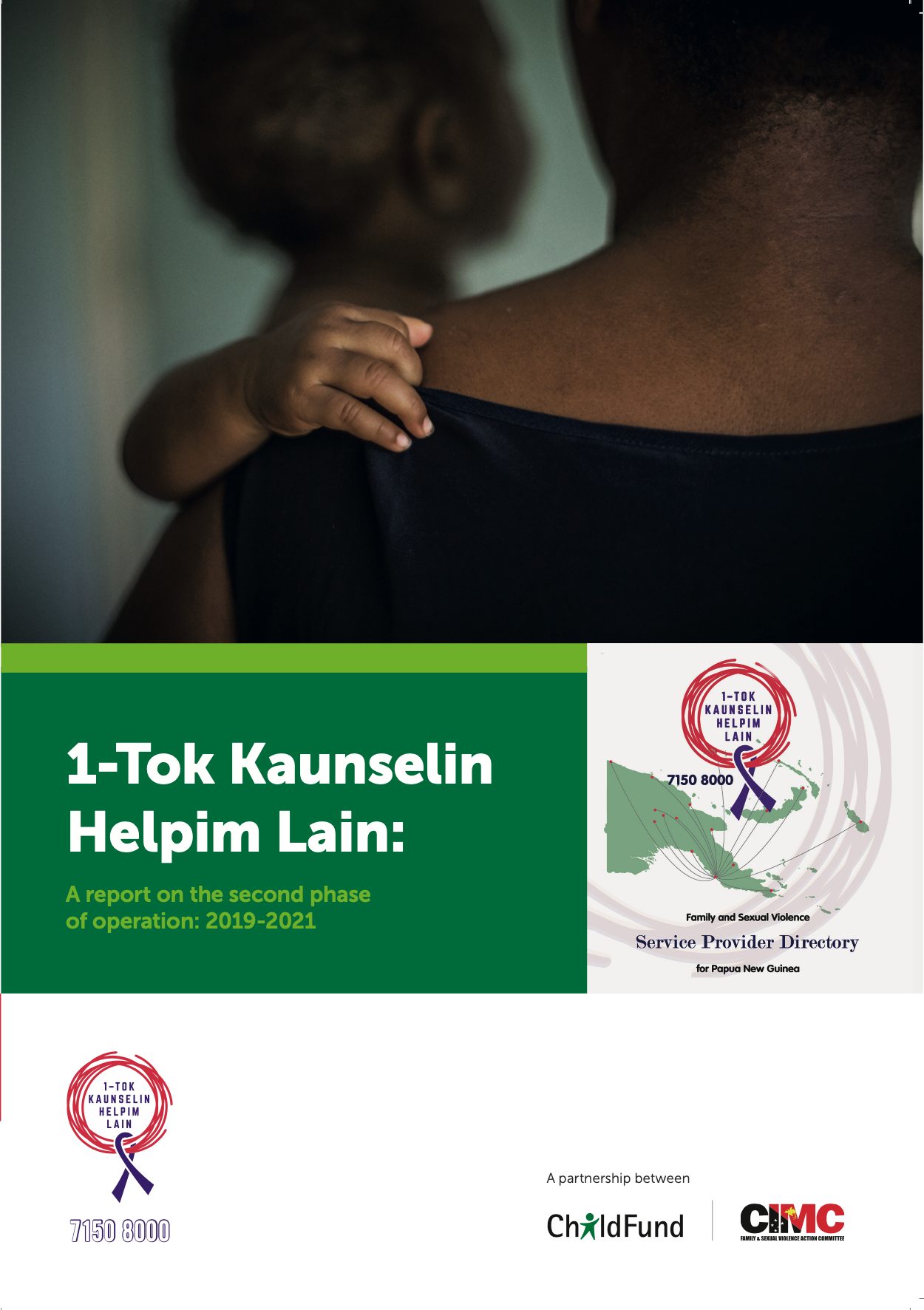- Every 30 seconds a woman is beaten in PNG. Two out of three women in PNG will experience domestic violence in their lifetime.
- In April this year a Special Parliamentary Committee on Gender-Based Violence (GBV) submitted 71 recommendations to curb violence against women, it remains unclear as to the number of recommendations that have been formally accepted by the National Parliament of Papua New Guinea.
- Counsellors at the ChildFund Helpline known as 1-Tok Kaunselin Helpim Lain discuss the hourly reports of horrific violence they discover every day.
According to the latest ChildFund report there were over 25,000 calls to the 1-Tok Kaunselin service over 11,000 of these calls were valid calls relating to domestic violence. This by no means is representative of the problem in PNG. Across the nation each year there are approximately 1.5 million cases of domestic violence and call centre struggles to keep up with the massive workload. The total population of Papua New Guinea is only 9.1 million.
Lorna is a counsellor at the helpline that works with those experiencing violence on a daily basis, she spoke recently about the workload and some of the challenges she is confronted with.
“We sometimes get hundreds of calls a day. It is a big number for a small team. I can’t give you an honest answer [about the number of calls] there is just so much. There’s so many calls coming in but with the team capacity we can only take so many and help so many people,” she said.
Unexpectedly, the majority of calls to the centre are made by men, this is mainly because they are the ones in the community that have phones. Men call not only to report acts of violence, but Lorna often talks to the perpetrators of violence.
“There are men who are perpetrators who call in and think they’re the victims and try to shift the blame to the women. But them calling is very good, they’re reaching out and it’s up to us to try and educate them about the rules and laws and why they’re in place.”
Earlier this year a Special Parliamentary Committee on GBV tabled a report in the PNG Parliament that put forward 71 recommendations. Many of these pertain to the desperate need for more safe houses and support services in the community and regional areas in PNG.
Call centre counsellor Joseph has experienced what its like to be aware of the violence in the community by not being able to provide safety or services so critically important for women and children in violent situations.
“Maybe in urban places like in Port Moresby and other centres where there are established services providers, yes, we can see changes. In places where there is an absence of service providers, that is a real issue. They call in, we assist them, but we can’t always help.”
“So sometimes we cannot remove the women or the children from the home and sometimes the children see more violence.”
“An example I can give is when a woman is tortured right there in the middle of the bushes, their relative calls, the problem now is there are no service providers on the ground. We know it’s happening, but we can’t reach them or their children.”
Margaret Sheehan CEO of ChildFund Australia is supportive of the recommendations presented by the Special Parliamentary Committee on GBV but would like greater clarity on the Governments plans to accept or roll out the recommendations in the final report to Parliament.
“We remain highly concerned about the level of domestic violence that occurs across PNG and the impact this has on the development and security of women and girls in the region,“ said Ms Sheehan.
“While it’s encouraging the Parliament is aware of GBV issues within the community, greater clarity is needed about their intent to tackle these issues and put in place the recommendations of their committee.”
“Our call centre is stretched and often left with few options for women and children in life threatening situations, placing enormous stress on our counsellors trying to offer guidance. Having a commitment from Government that there are more safe houses and services coming in critical areas would help ease the tension.”
For a copy of the latest call report from ChildFund PNG: Publications & Reports | ChildFund Australia






























